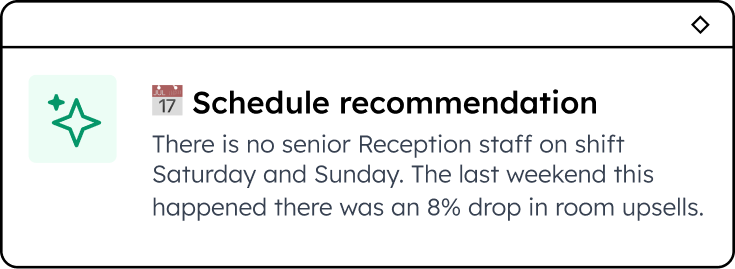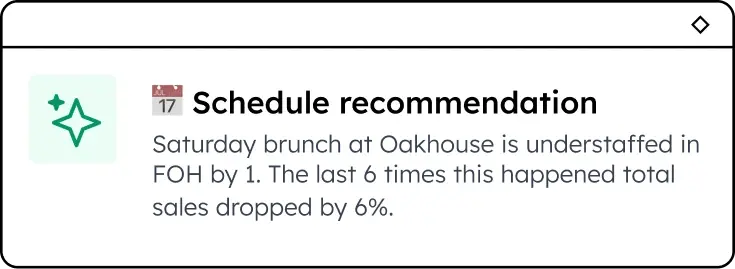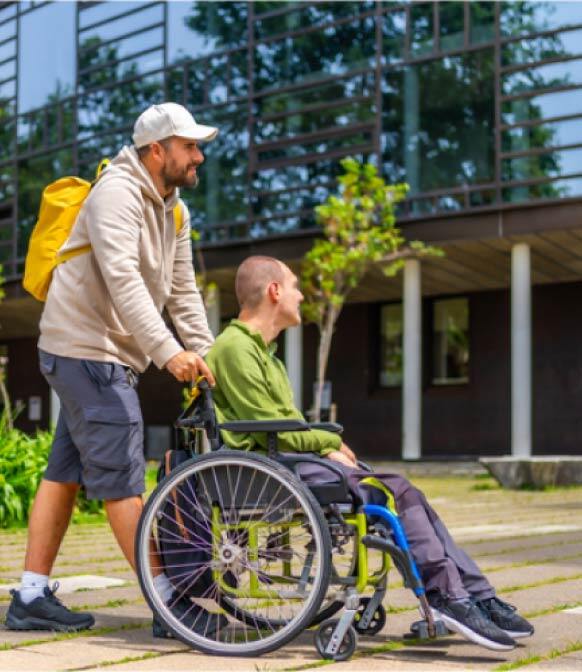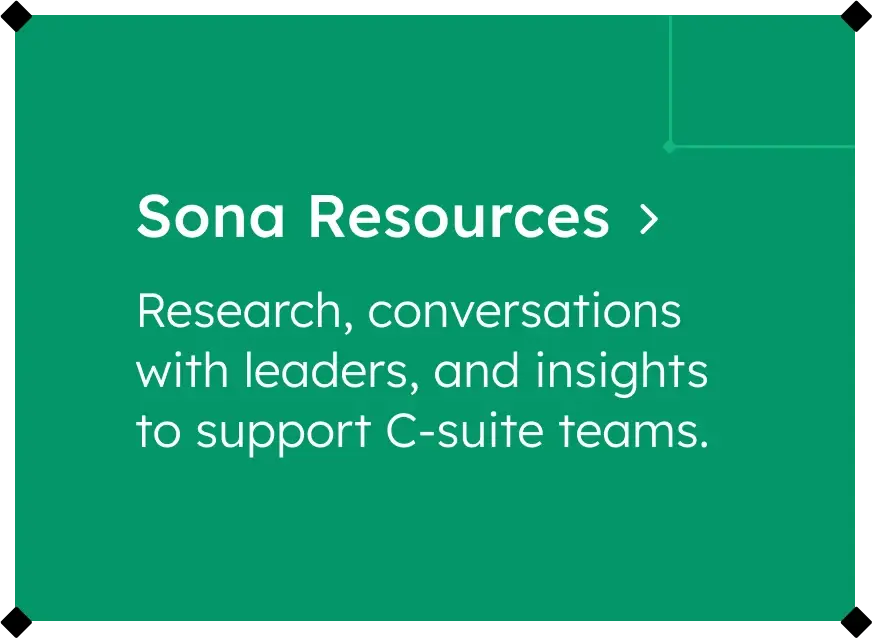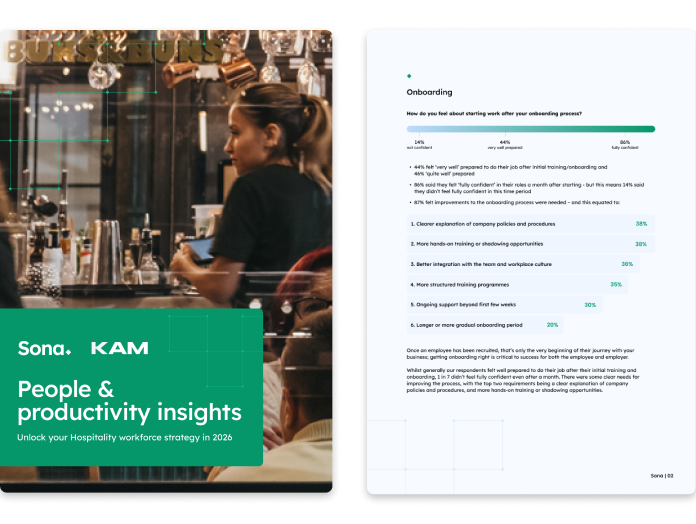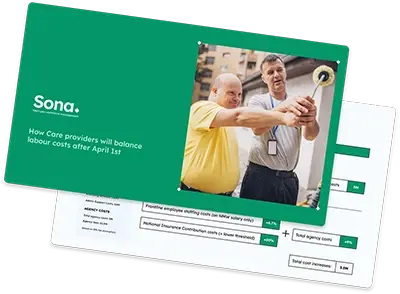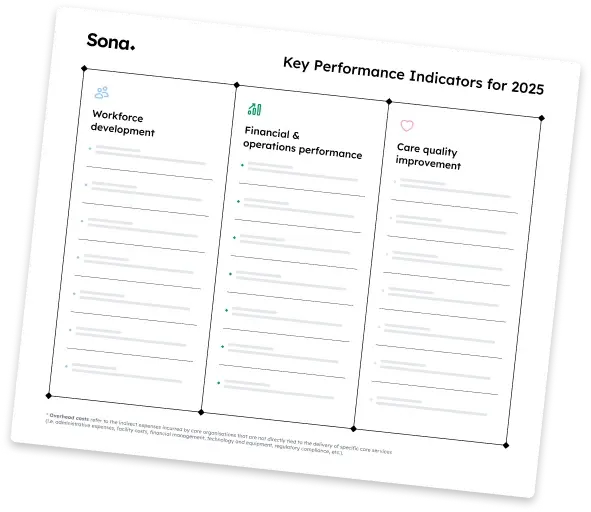Sona Webinar Recap | Adapting to Change: How to Lead Care Teams Through Uncertain Times
Adapting to change is never easy—and there are many changes going on in the Social Care sector worldwide, including digitalisation, funding reforms and the resignation crisis. However, there are plenty of things that leaders can do today to be better tomorrow, as leaders and as a care team.
8 minute read
Here are the key takeaways from our latest webinar “Adapting to Change: How to Lead Care Teams Through Uncertain Times” with Social Care experts Richard Upshall, Lucy Buxton, and Claire Kennedy.
Sona’s adapting to change webinar running order
02:35 | Introduction of panelists, Lucy Buxton, Claire Kennedy, and Richard Upshall
04:56 | The most important qualities leaders need to support their teams through change and uncertainty
08:24 | Practices and tips to become a better leader
14:20 | How personality quizzes to help you better understand your team and help team building
19:01 | How to think about embarking on change: planning and getting people onboard is key
23:53 | Common pitfalls when planning for change
26:24 | How people can prepare for the upcoming CQC changes happening
29:40 | How tech can support people for the upcoming CQC changes
31:00 | The importance of changing mindset to influence the outcome
32:11 | Key learnings from rolling out new technology in Social Care teams
35:15 | Technology can’t be the only tool, communication must come first
38:47 | How to help teams become more resilient and emotionally equipped to deal with change
47:22 | How to start working with the CQC
Meet the panel
Richard Upshall, Head of Product of Sona
Richard is the Head of Product at Sona, a workforce management solution. With over 15 years of experience in product management and 10+ years in Social Care, he brings a wealth of knowledge and expertise to his role.
Richard works closely with cross-functional teams, including engineering, design, and marketing, to ensure that Sona's products are not only high-quality but also meet the needs of their customers. Richard is passionate about building products that are user-centric, scalable, and innovative, and he continuously strives to stay up-to-date with the latest trends and best practices in Social Care.
Lucy Buxton, Owner of LJB Coach Consultancy LTD
As the owner of LJB Coach Consultancy, Lucy works closely with her clients in Social Care to help them identify their goals and develop a plan to achieve them through neuro-linguistic programming. With over 32 years in Social Care, having worked as a nurse and as a hypnotherapy trainer, she’s able to offer a wide range of expertise and services to her clients.
Lucy is passionate about helping her clients grow and succeed, and she strives to create a supportive and empowering environment in which they can thrive. Her approach is tailored to each individual's unique needs and goals, and she takes a collaborative and holistic approach to coaching and consulting.
Claire Kennedy, Chief People Officer at Liaise
As the Chief People Officer, Claire is responsible for overseeing all aspects of the human resources department of Liaise. Liaise offers support packages in the supported living and residential market within the learning disability side of the Social Care sector.
Claire is passionate about the digitalisation of the Social Care sector to foster a workplace environment and service that values diversity, equity, and inclusion of employees and residents. Her approach to people management is strategic and data-driven, and she is committed to continuously improving people’s employee experience to attract and retain top talent in the industry.
3 Key takeaways from this webinar on adapting to change
1) How leaders can motivate teams through uncertain times and changes
It’s in times of duress, difficulty, and change that great leaders are able to be the north star their teams need. After all, people look up to their leaders during uncertain times, so it’s important to show that you can be the supporting rock they need.
And let’s face it, the Social Care sector worldwide is going through some changes: digitalisation, funding reforms, talent shortage, and the resignation crisis, to name a few. With the expected changes that are likely to come from the Care Quality Commission in the UK, it’s only natural to look at what leaders need to have to guide their organisations, teams, and residents into the new future.
The panel discussed some important qualities leaders must have, such as being able to:
- Communicate effectively, clearly, and with confidence to all team members
- Motivate and inspire their teams for the coming change
- Recognise their employees for their continued effort
- Receive and give feedback in ways that their employees understand
But most importantly, leaders need to be able to take their teams with them on their journey.
To motivate teams during uncertainty and change, Claire said leaders need to “bring people on the journey with them. It's not necessarily about people feeling like things are happening to them. It's about getting their buy-in into the journey that you're going on and ensuring that they have the tools and support they need in order to be able to deliver top-quality care. Whether or not that's a support worker at home or whether or not that's an HR person or a finance person.
It's all about ensuring that your employees feel appreciated and valued in their jobs and are given the right skills in order to ensure an effective delivery so that they get the satisfaction they need rather than just seeing the workplace as something that they dread getting up for on a Monday.”
Whether an organisation is implementing new tech to make managing the rota easier or adapting to the new CQC guidelines and processes, leaders must be prepared to lead their teams. They need to be self-aware of their own strengths and weaknesses to be able to create a safe space where workers can approach them with their fears, doubts, suggestions, and feedback.
As all panellists said, understanding the personality of your workers, through personality tests, for example, is key to knowing how to best communicate with them and lead them through the change that’s happening.
It’s up to the leaders to get the best out of their team, and it all starts with understanding what kind of leader you are and how you can support each individual to go through the changes in a way that makes sense to them.
2) Preparing and adapting to change: it’s all about planning
When it comes to being prepared for change, a solid plan is crucial. However, how can leaders go around making these plans?
Well, Claire says one of the most important things is about making a very detailed and tangible plan that everyone knows about and can add their own perspective.
“The key is in the plan and it's about having a really tangible plan. The way I approach it is having a high-level plan fast, as in you sit down with one or two other people you plot it out at a very high level and you then do very top-level plans. Once that’s ready, you share it with the team who can then add that sort of detailing around it about things that you may not have considered.
Getting that high-level plan, getting everybody bought into it, and getting as much detail as you can. Even if you end up with project plans that are hundreds and hundreds of lines long, actually it means that you're not going to miss anything.
When you're delivering something quite fundamental to a business, especially if it's to do with staff or people who support our residents, it's important that that hits in the right way. Because if anything is wrong, or if anything fundamentally goes wrong, people lose faith in the products that you're trying to introduce and then that means that it doesn't get traction as quickly as it needs to. So, it is all about the planning and it is again all about bringing people on the journey with you.”
As Richard said, it’s important to be able to adapt the plan as it goes, because most likely things will come up during execution, but you shouldn’t just stick to the plan because it’s there. Leaders should adapt, make the changes, and include people–and their ideas–in these changes. Once people understand the purpose and the why of the changes and feel listened to, they’ll be on board with you and your team will get to the goal, even if it’s through a different path.
3) The CQC's upcoming changes and how technology can help
Sometimes change comes unexpectedly–such as the recent pandemic–and other times it comes waving flags and honking horns, much like the coming CQC changes.
Lucy says one of the most important things when expected changes are about to happen is to start habits that will make sense for the change to come.
“We can sit and wait for change to happen or we can start to learn now how to do things. There are plenty of resources out there that providers can read, managers can read, and staff can read. We can start talking about this change now.
It's about adapting your thinking now so that when the change happens it actually isn't really a change because you've formulated that habit by that point in time. So, ultimately it will be about people making the effort on a frequent basis to upload information into a portal. Then start doing that now.”
Technology can be of great help for the coming changes by the CQC. If you’re able to roll out the necessary technology that will help you better manage your employees, and improve real-time data collection, things will be easier. Tools like Sona, which help you manage rotas, timetables, shift changes, reporting, and working with agencies can be the piece missing in your puzzle.
Although technology is beneficial, Richard makes a valid point: complete adoption of technology is almost never achievable. Being able to get most of your team to use tech is key, but also understanding that some of your team members just can’t deal with technology and rather stay with pen-and-paper procedures shouldn’t be a problem.
You can put processes in place to make things easier for those who don’t adopt technology as well, or as quickly. The bottom line is always to provide great quality of care, so whatever processes, workshops, tools, and tech you need to accomplish that, and that the people on the floor are comfortable using is crucial. That’s why including everyone’s feedback and truly understanding how each individual in your team works is necessary to keep providing that great service to your patients and residents.
Lastly, an important final point made by the panellists: stop looking at the CQC as the enemy. The reforms they put in place are for the betterment of the whole care quality in the UK, even if things take time to adapt and to look at its benefits, they are there to help.
If you as a leader can understand that, you can communicate better about the changes to come with your team, and instead of awakening fear and doubt in your team, you’ll be motivating them, inspiring them, and overall getting them excited about the change to come.
Adapting to change is all about leading with kindness and self-awareness
In the Social Care sector kindness should never go amiss. When leaders understand that through motivation, self-awareness, and recognition they can get their care teams through any changes that come, they’ll be able to thrive in the future. We’re all in this together, and we’re here for each other.
Ready to see how Sona can help you be better prepared for today, and tomorrow? We’re right here for you—we got this.
Enjoyed this article? Let's stay in touch 👋
If you liked this article, why not subscribe to our newsletter to get the latest news and views delivered straight to your inbox?

